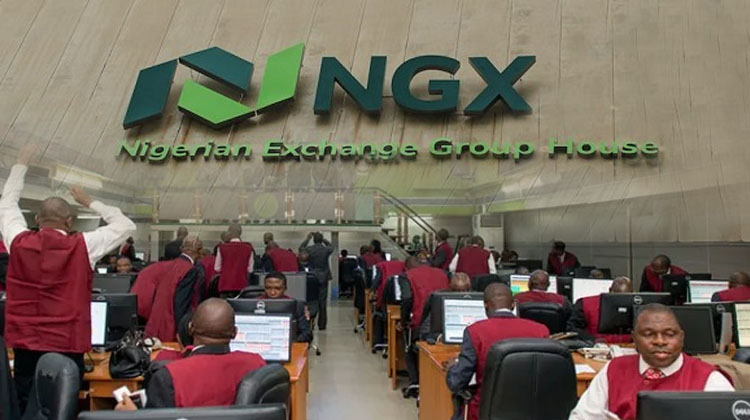By Oluwakemi Abimbola
Bullish trading returned on the Nigerian Exchange Limited on Wednesday following four days of bearish trading. Investors gained N41bn at the end of the day’s trading.
Both the market capitalisation and the All-Share Index rose by 0.12 per cent at the close of trading on Wednesday to N34.973tn and 64,267.36 respectively.
However, the number of deals, volume and their value on the floor of the NGX trended in the negative by 21.22 per cent, 56.60 per cent and 44.62 per cent respectively compared to the figures on Tuesday. The year-to-date returns stood at 25.28 per cent.
The positive market sentiments resulted in 31 stocks on the gainers’ table compared to 26 losers.
Atop the gainers’ table were AbbeyBDS, Chams and NASCON whose share prices appreciated by 10 per cent to N1.21, N0.99 and N35.50. Sky Aviation and Dangote Sugar gained 9.96 per cent and 9.93 per cent in their share value to close at N28.15 and N32.65 respectively.
On the losers table were paper company, Thomas Wyatt and TIP which lost 10 per cent of their market value to close at N1.17 and N0.72 respectively. UPL lost 9.78 per cent of its share value to close at N2.49, Omatek lost 9.76 per cent to close at N0.37 and John Holt lost N9.44 per cent to close at N1.63.
Speaking on the market trend with The PUNCH, the Managing Director/ Chief Executive Officer of APT Securities, Garba Kurfi, expressed an optimistic outlook for the equity market despite the poor performance of some listed companies who have released their half-year report.
He said, “The market outlook is good for two reasons. The performance of many of the companies is still beyond expectations and as long as there is inflation, it is likely that we will see the small stocks and penny stock rally up and we have seen that.
“Most of the penny stocks that were trading 20 kobo are no longer there. They are moving fast and better. That is the trend for an inflationary economy and you remember that our economy is cost-push inflation and when you have that, it affects our capital market, especially the small-cap and penny stocks.”
Source: The Punch








